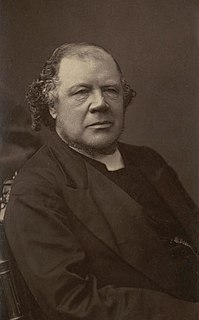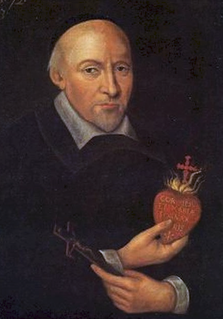A Quote by Virginia Woolf
The intellect, divine as it is, and all worshipful, has a habit of lodging in the most seedy of carcasses, and often, alas, acts the cannibal among the other faculties so that often, where the Mind is biggest, the Heart, the Senses, Magnanimity, Charity, Tolerance, Kindliness, and the rest of them scarcely have room to breathe.
Related Quotes
A people among whom there is no habit of spontaneous action for a collective interest - who look habitually to their government to command or prompt them in all matters of joint concern - who expect to have everything done for them, except what can be made an affair of mere habit and routine - have their faculties only half developed; their education is defective in one of its most important branches.
Our intellect is not the most subtle, the most powerful, the most appropriate, instrument for revealing the truth. It is life that, little by little, example by example, permits us to see that what is most important to our heart, or to our mind, is learned not by reasoning but through other agencies. Then it is that the intellect, observing their superiority, abdicates its control to them upon reasoned grounds and agrees to become their collaborator and lackey.
A Positive Mental Attitude is the right mental attitude. What is the right mental attitude? It is most often comprised of the "plus" characteristics symbolized by such words as faith, integrity, hope, optimism, courage, initiative, generosity, tolerance, tact, kindliness, and good common sense. A person with positive mental attitude aims for high goals and constantly strives to achieve them.
When we want to help the poor, we usually offer them charity. Most often we use charity to avoid recognizing the problem and finding the solution for it. Charity becomes a way to shrug off our responsibility. But charity is no solution to poverty. Charity only perpetuates poverty by taking the initiative away from the poor. Charity allows us to go ahead with our own lives without worrying about the lives of the poor. Charity appeases our consciences.
Insanity is often the logic of an accurate mind overtasked. Good mental machinery ought to break its own wheels and levers, if anything is thrust among them suddenly which tends to stop them or reverse their motion. A weak mind does not accumulate force enough to hurt itself; stupidity often saves a man from going mad.
What you call the psychic being is the mind of the vital. The heart is the seat of this mind. And this mind is the essence of the senses. It receives things from outside, acts upon things that are outside - knows, gives consent, takes interest in them. But this mind cannot be the Ishwara, but it is the knower, the giver of the consent.
The proclamation of the Gospel is destined primarily to the poor, to those who often lack the essentials for a decent life. The good news is first announced to them, that God loves them before all others and comes to visit them through the acts of charity that the disciples of Christ carry out in his name.
When a man receives something Divine, in his heart he rejoices; but when he receives something diabolic, he is disturbed. The Christian heart, when it has received something Divine, does not demand anything else in order to convince it that this is precisely from the Lord; but by that very effect it is convinced that this is heavenly, for it senses within itself spiritual fruits: love, joy, peace, and the rest (cf. Gal. 5:22).
O admirable Mother of God! How many sins have I committed for which thou hast obtained pardon for me, and how many others would I have committed if thou hadst not preserved me? How often have I seen myself on the brink of Hell in obvious danger of falling into it but for thy most benign hand which saved me? How often would the Roaring Lion of Hell have devoured and swallowed up my soul had not the charity of thy heart opposed him? Alas! Without thee, my dearest and my all-good Mother, where should I be today? I should be in the fiery furnace of Hell from which I would never emerge!


































